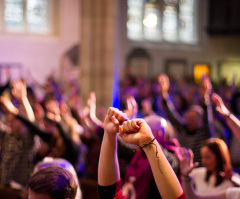
Scott Aniol
Op-ed contributor
Latest

The Holy Spirit’s most supernatural work
Some of the ordinary activities of the Spirit have been at work since the beginning of time and will continue until the eternal kingdom. The most notable of these is the Holy Spirit’s work in ...

The Holy Spirit’s work in creation
The first instance of the Spirit’s work appears in the opening verses of Scripture.

Was Jesus born in the bleak midwinter?
I raise the issue of winter portrayed in Rossetti’s first stanza because it well illustrates a problem with how many, if not most, evangelicals think about hymns today.

Should worship be authentic? It depends on what you mean
Constant clamoring for “new” and “fresh” is not a biblical perspective — biblical Christianity is old and stable.

If you want a pure church, your worship must also be pure
One day we will sit at his table in our glorified bodies, clothed in fine linen, bright and pure, and we will see Christ bodily with our physical eyes.

Interpreting terrible atrocities on Earth with heavenly lens
How, then, do these visions of God in his heavenly palace/temple impact our understanding of what happens here on earth?

How much emphasis should Christians place on bodily exercise?
Should Christians care about their bodies? How much emphasis should we place upon bodily exercise?

Why you should use hymnals to plan worship services
Many churches recognize the importance of utilizing traditional hymns in corporate worship, and hymnals remain valuable sources of such historic Christian songs. However, in an internet age, some worship planners are unsure of how to effectively use a hymnal.

A concise biblical evaluation of Critical Theory
So the question is not whether CT comes from Scripture; it certainly does not, but neither does calculus, free market economics, or microbiology. The more critical question is whether CT is consistent with biblical truth.

The significance of worship for the Great Commission
I would like to suggest that the relationship between worship and evangelism is actually more complementary than either of these perspectives imply.










